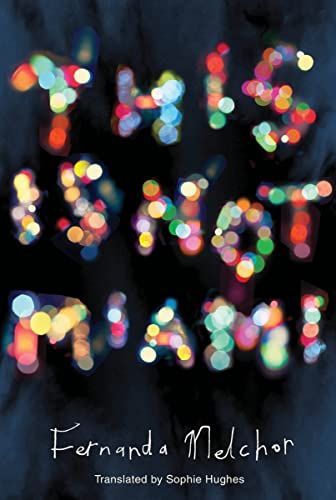
This Is Not Miami
Set in and around the city of Veracruz in Mexico, This Is Not Miami delivers twelve devastating stories that spiral from real events. These cronicás—a genre unique to Latin American writing, blending reportage and fiction—probe the motivations of murderers and misfits, compelling us to understand or even empathise with them. Melchor is like a ventriloquist, using a range of distinctive voices to evoke the smells, sounds and words of this fascinating world that includes mistreated women, damaged families, refugees, prisoners and even a beauty queen. As in her hugely acclaimed novels Hurricane Season and Paradais, Fernanda Melchor’s masterful stories show how the violent and shocking events that make the headlines are only the surface ruptures of a society on the brink of chaos. Fernanda Melchor was born in 1982 in Veracruz, Mexico. She is widely recognised as ‘one of Mexico’s most exciting new voices’ (Guardian). She won the Anna-Seghers-Preis and the International Literature Award for Hurricane Season, which was also longlisted for the National Book Award, shortlisted for the International Booker Prize and was a New York Times Notable Book. Her most recent novel, Paradais, was published in 2022 and was longlisted for the International Booker Prize. This Is Not Miami is a collection of narrative non-fiction pieces. Melchor’s books are published in thirty-four territories. She lives in Mexico. Sophie Hughes has translated works by Laia Jufresa and Enrique Vila-Matas, among others. Her translation of Fernanda Melchor’s Hurricane Season was shortlisted for the International Booker Prize. She has also translated Melchor’s recent novel Paradais and her collection of non-fiction pieces, This Is Not Miami. In 2021 she was awarded the Queen Sofía Translation Prize. ‘Melchor evokes the stories of Flannery O’Connor, or Marlon James’ A Brief History of Seven Killings. Impressive.’ New York Times ‘[Hurricane Season and Paradais] establish Melchor...as the latest of Faulkner’s Latin American inheritors, and among the most formidable...Melchor’s prose is muscular but always attentive to the world of the senses and carried forward by an impeccable ear...She isn’t holding a Stendhalian mirror up to Mexican society; she’s dissecting its body and its psyche at the same time, unafraid of what she might find.’ New Yorker